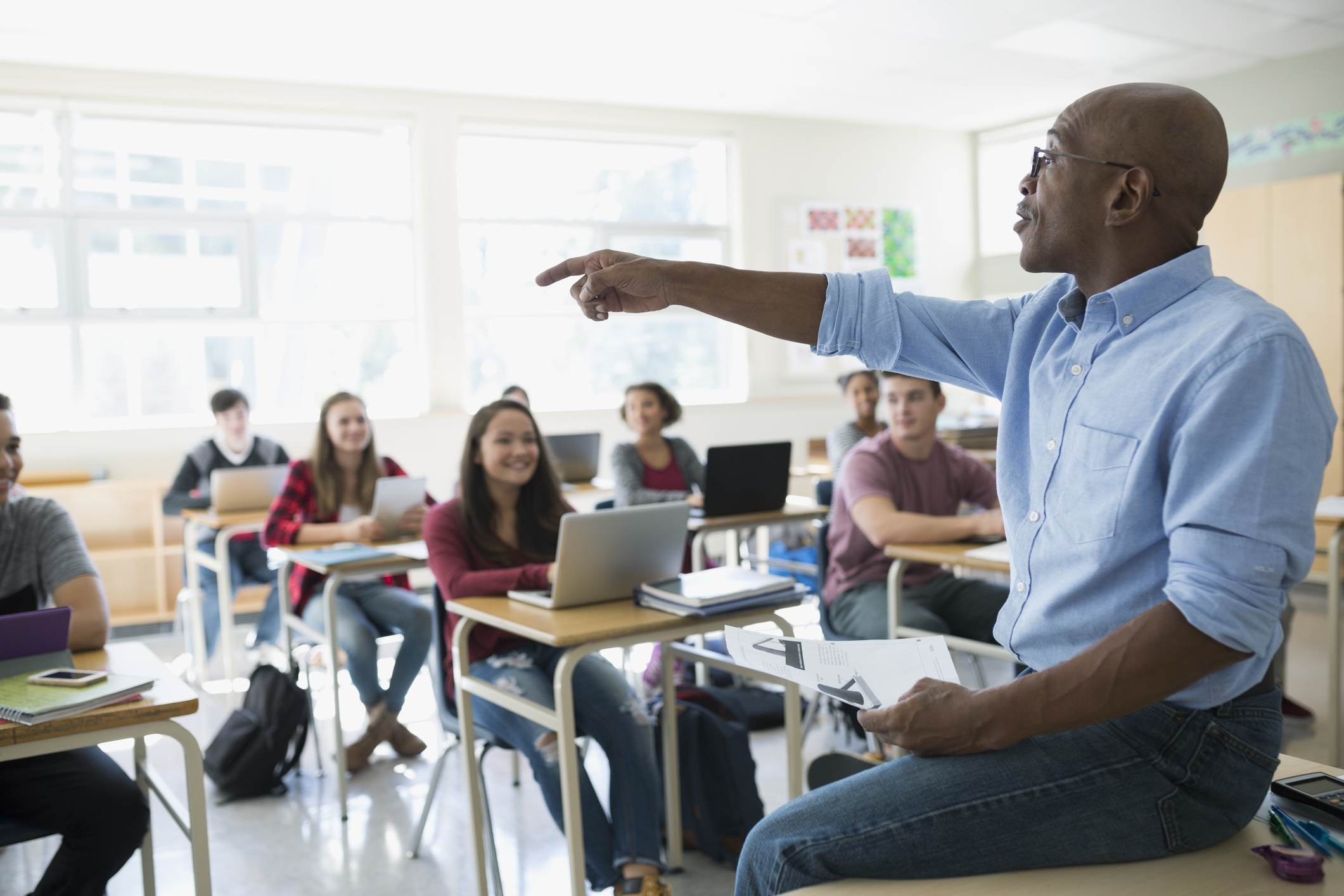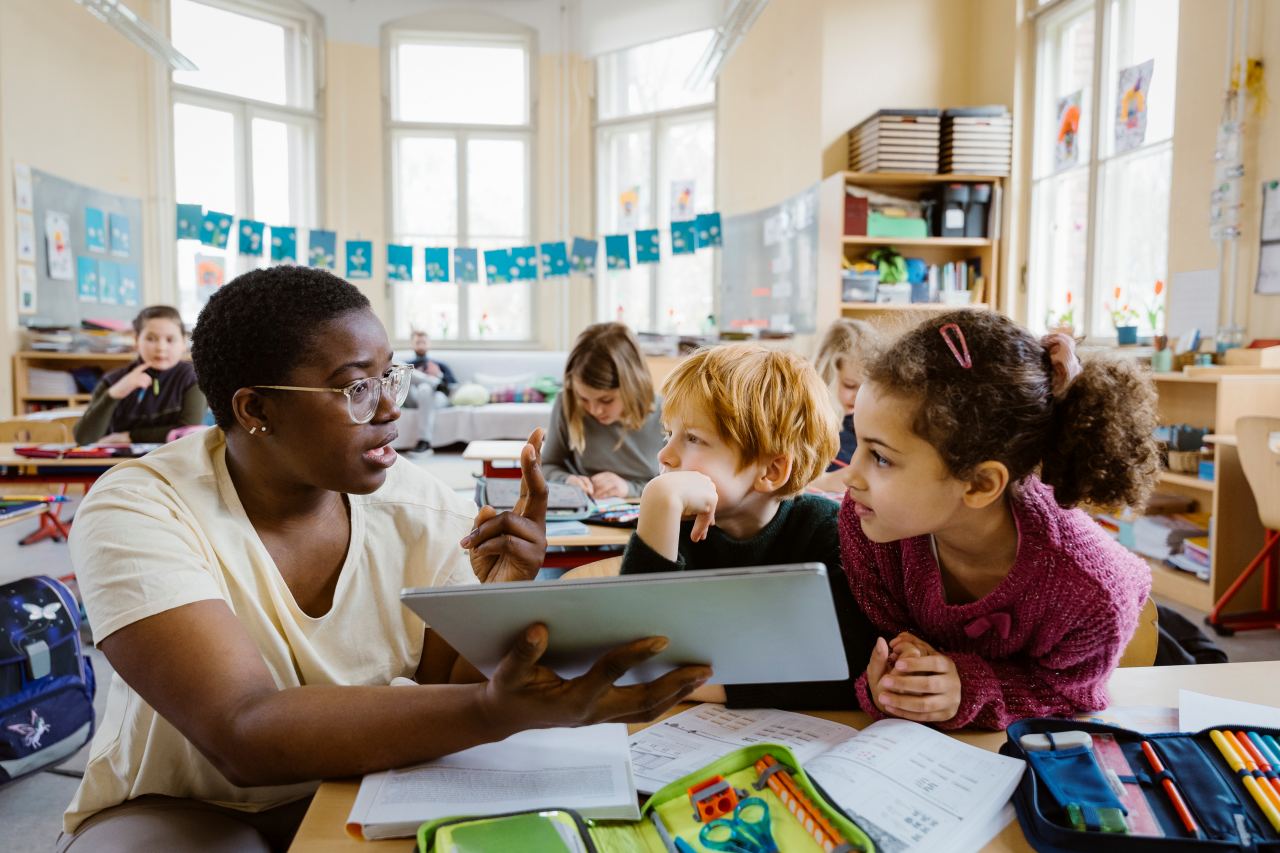Top Primary Science Tuition Singapore to Help Your Child Excel
Top Primary Science Tuition Singapore to Help Your Child Excel
Blog Article
Checking Out the Various Training Methods in Primary Scientific Research Education And Learning Today
The landscape of primary scientific research education and learning is developing, with numerous training strategies gaining prestige in modern class. Inquiry-based knowing, hands-on experiments, and the integration of modern technology are redefining exactly how teachers involve young minds. In addition, collective strategies and distinguished guideline are being employed to satisfy the varied needs of students, improving both involvement and understanding. As we examine these approaches, concerns develop concerning their performance and the effects for future educational practices. What might these shifts in method mean for the following generation of students?
Inquiry-Based Understanding
Inquiry-Based Understanding (IBL) is an instructional technique that motivates trainees to check out scientific principles with questioning, examination, and hands-on trial and error. This method stresses the function of students as energetic individuals in their discovering, promoting vital thinking and problem-solving abilities. By engaging with real-world questions, students come to be interested and determined, which boosts their understanding of clinical principles.
In IBL, educators function as facilitators, assisting trainees as they navigate their inquiries instead of supplying details directly. This student-centered strategy permits distinction, fitting numerous discovering styles and rates. Trainees develop abilities in formulating theories, designing experiments, and assessing data, which are essential for clinical literacy.
In addition, IBL promotes collaboration amongst students, urging them to share ideas and findings. This collective questions promotes social abilities and a sense of area within the classroom. Furthermore, the procedure of query encourages strength, as trainees learn to accept failing as a tipping stone toward understanding.
Hands-On Experiments
Hands-on experiments are a crucial part of reliable science education, enhancing the concepts of inquiry-based knowing. These experiments enable pupils to involve directly with scientific ideas, cultivating a much deeper understanding through experiential knowing. By adjusting materials and observing results, young students can realize abstract concepts in tangible methods.
Such tasks promote essential thinking and analytical abilities, as students hypothesize results, conduct experiments, and examine outcomes. This process encourages them to ask concerns, improve their understanding, and create a scientific frame of mind. Moreover, hands-on experiments can be customized to diverse understanding designs, ensuring that all students have the opportunity to engage meaningfully with the content.
Moreover, hands-on experiments often encourage cooperation amongst peers, advertising team effort and communication skills. Functioning in teams allows trainees to share ideas, discuss findings, and gain from each other, which boosts their total academic experience.
Including hands-on experiments into the primary scientific research educational program not just enriches the finding out setting yet additionally cultivates a long-lasting rate of interest in science. By proactively joining their education and learning, trainees are more probable to create an interest for clinical query that extends beyond the classroom.

Technology Combination
Integrating modern technology right into primary science education has ended up being progressively essential in fostering student interaction and improving finding out end results. The usage of electronic tools, such as interactive simulations, online laboratories, and academic software application, supplies trainees with possibilities to discover clinical principles in ingenious methods. These sources assist in a deeper understanding of complicated topics by enabling learners to imagine and control variables that would certainly be not practical in a typical class setup.
In addition, modern technology integration encourages personalized learning experiences. Students can progress at their very own rate, taking another look at tough principles through multimedia resources, which accommodate different understanding designs. This versatility not just supports individual development however additionally cultivates a feeling of autonomy in learners.
Additionally, innovation functions as a bridge to real-world science, attaching pupils with present research and specialist payments. Access to on-line databases and clinical journals widens trainees' perspectives on clinical inquiry and cultivates crucial thinking abilities.
Collaborative Discovering
Collective learning plays a crucial function in primary scientific research education by fostering synergy and interaction abilities Visit Website among pupils. This technique encourages students to collaborate, share understanding, and participate in analytical, which boosts their understanding of scientific website link ideas. By taking part in group tasks, students discover to express their ideas, pay attention to diverse viewpoints, and work out remedies, all of which are crucial skills in both academic and real-world contexts.

Research study suggests that collaborative knowing can result in raised motivation and involvement in science subjects, as pupils discover satisfaction in shared experiences (primary science tuition Singapore). In addition, this method prepares trainees for future joint ventures, outfitting them with the skills needed for effective team effort in college and expert environments. Eventually, welcoming collective learning in main science education can significantly enrich the discovering experience and advertise a deeper understanding of scientific questions
Distinguished Instruction

Differentiated direction can manifest in numerous methods, such as differing the content, procedures, or items of knowing. For instance, educators may use tiered jobs that give varying degrees of intricacy, permitting trainees to operate at their corresponding readiness levels. Additionally, versatile organizing strategies can assist in cooperation among trainees with various abilities, fostering peer discovering.
Assessment plays a critical duty in this technique, as it educates instruction and assists educators comprehend each pupil's special demands. Formative evaluations, such as quizzes and monitorings, can assist teachers in adjusting their techniques to boost discovering results. primary science tuition Singapore. Ultimately, by applying set apart direction in main science education, educators can grow an extra equitable and effective understanding environment, equipping all trainees to reach their full possibility in understanding clinical phenomena
Conclusion
In recap, the varied teaching methods in primary scientific research education, including inquiry-based discovering, hands-on experiments, modern technology integration, joint learning, and distinguished guideline, collectively add to a more reliable knowing environment. These methods promote vital thinking, analytic skills, and a much deeper comprehension of scientific ideas. By executing these methods, teachers can develop interesting and encouraging class that attend to the diverse requirements of students, eventually fostering a lifelong interest in science and improving scholastic accomplishment.
Inquiry-Based Understanding (IBL) is a pedagogical strategy that motivates pupils to check out scientific concepts through doubting, investigation, and hands-on trial and error.Collaborative knowing plays an essential duty in key scientific research education and learning by fostering teamwork and interaction abilities among students.Research indicates that joint knowing can lead to enhanced inspiration and involvement in science topics, as trainees discover satisfaction in shared experiences.In cultivating a comprehensive understanding setting, differentiated guideline arises as an essential method to accommodate the varied demands and abilities of students in primary scientific research education and learning. Eventually, by implementing distinguished guideline in key scientific research education and learning, teachers can grow an extra fair and efficient knowing environment, equipping all trainees to reach their complete possibility in comprehending scientific phenomena.
Report this page